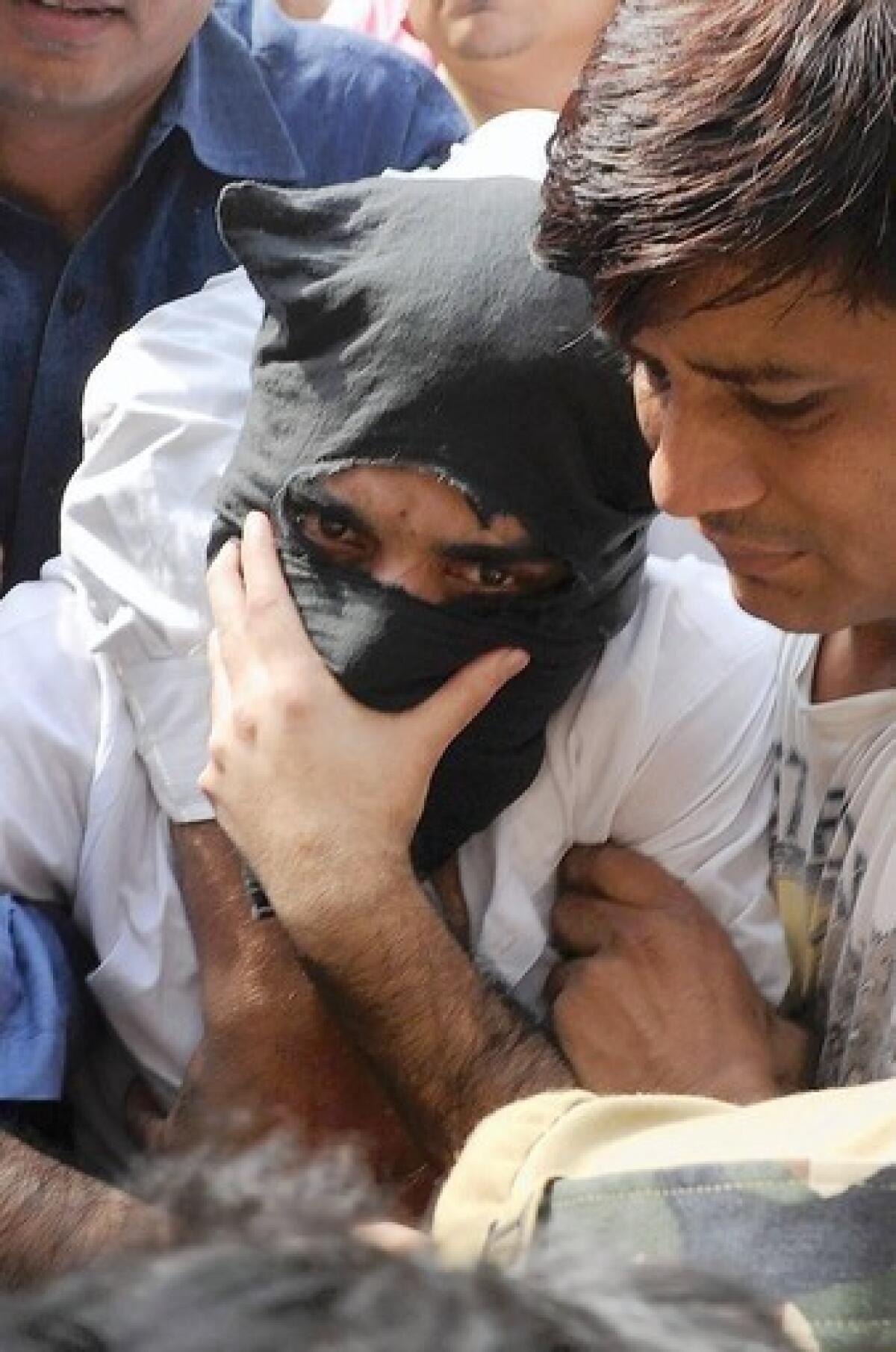Pakistan, India make superficial gains in their relations

NEW DELHI â Pakistan said this week that it would disallow evidence from India implicating some Pakistani citizens in the Mumbai attack. A few hours later, the two sides announced to jubilation that they would resume cricket matches on Indian soil this year.
Welcome to the two-steps-forward, one-step-back nature of peace talks between these two wary nuclear neighbors.
Efforts have been made recently to repair relations badly damaged by the 2008 attack on Mumbai in which 10 heavily armed men arrived by boat, allegedly from the Pakistani city of Karachi, killing 166 people over a three-day terrorist rampage.
Though there have been a number of symbolic feel-good measures and more high-level meetings, little concrete progress is evident. Nor, say those on both sides, is much to be expected if history is any judge.
âThere are too many rocks, too many hard places,â said Shaukat Qadir, a security analyst and retired Pakistani army brigadier general. âThere are numerous goodwill gestures, and those are important I guess. But goodwill is useless unless someone in the administrations is willing to back it up.â
Among recent gestures was a visit in April by Pakistani President Asif Ali Zardari to an Indian shrine that included lunch with Indian Prime Minister Manmohan Singh; the prompt return of an Indian military helicopter in October that strayed into Pakistani territory; and the gracious treatment this month of Air India passengers and crew members after mechanical problems forced their plane to land in Pakistan.
Occasionally, these gestures have struck an off-key tone. In June, Pakistan media flagged the release by their country of a high-profile Indian death row prisoner, only to have the government announce several hours later â under pressure from Pakistani security agencies, some say â that a less controversial inmate would be freed, putting the prisonersâ families on an emotional roller-coaster.
On more substantive fronts, Pakistan agreed in February to extend most-favored-nation trading status to India, which reduces tariffs and trade barriers, a move that India made in 1996. But the process has bogged down. The two countries recently opened a large terminal on the Wagah border that could help two-way trade triple to $8 billion a year. And India has agreed âin principleâ to allow direct Pakistani investment, but a proposal to grant business people multiple-entry visas has stalled.
âThe trade and liberalized visa regime seemed to fall flat, a pretty good indicator of the state of relations,â said Dipankar Banerjee, an analyst and former major general in the Indian army. âYou have to look at the dialogue, and thereâs absolutely no progress in that.â
Even as Pakistanâs balked at easing some trade restrictions, India has resisted Pakistanâs bid to end the expensive, deadly standoff on the 15,000-foot plus Siachen Glacier, described as the worldâs highest and coldest battlefield. Over the last three decades, adverse conditions have claimed more of the 8,000 troops who have died there than has combat, including 140 Pakistanis lost in April to an avalanche.
âItâs a useless war that both sides can ill afford,â Qadir said. âPakistanâs is a bit worse off, but both economies are pretty bad.â
This week, fans in both countries greeted with applause the news that Pakistanâs cricket team would play several one-day matches in India starting in December. The two cricket-crazy nations have not played a series since 2008. (A joke has it that the border through the disputed and divided Kashmir region, the Line of Control or LOC, really stands for Love of Cricket.) Newspaper opinion pieces on both sides urged more people-to-people contact to circumvent government posturing.
At the same time, Mondayâs news that Pakistan would not accept evidence from India related to the Mumbai attack â the latest of several refusals â bolstered a view among many Indians that Pakistanâs security forces are the real power behind Islamabadâs democratically elected government, and will go to great lengths to hide their ties with insurgent groups.
Particularly galling to many Indians is the continued freedom of Hafiz Muhammad Saeed, a Pakistani militant. In the 1980s, Saeed established Lashkar-e-Taiba, a militant group that Washington and New Delhi say is responsible for the Mumbai attacks.
Topping both countriesâ list of irritants is control over Kashmir, analysts said, followed on Indiaâs side by the Mumbai evidence issue and on Pakistanâs by the Siachen Glacier standoff and disputes over water.
Essentially, after more than six decades of distrust, three wars and an arms race since their bloody 1947 partition, thereâs very little trust and many entrenched political, military and social interests lined up against real rapprochement, analysts said.
âWhen I look at the response of youth on both sides of the border, those who donât have partition down their throats, Iâm very optimistic,â said Qadir, 65. âWhen I look at my own generation, I donât think thereâs any use. Maybe Facebook or Twitter can make itâ across the Line of Control.
Tanvi Sharma in the New Delhi bureau contributed to this report.
More to Read
Sign up for Essential California
The most important California stories and recommendations in your inbox every morning.
You may occasionally receive promotional content from the Los Angeles Times.










